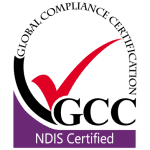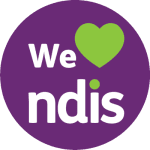A revolutionary social skills program for 8-12 year olds with high-functioning autism spectrum disorders & adhd.
The program has been recently adapted and evidence has shown it to be effective to help children across a range of learning problems and disabilities.
We also offer this program to children with general social skills difficulties including children with Attention Deficit Hyperactivity Disorder (ADHD).
Life for kids with Autism Spectrum Disorders & ADHD is about to get a whole lot easier! The Secret Agent Society (SAS) Program helps kids crack the codes of emotions and friendships, bullying and friendly joking, conversations and coping.
With the help of fun social skills games (including a multi-level computer game, role-play based board game and social skills books), the Secret Agent Society (SAS) social skills program is an enjoyable and effective framework for social skills instruction.
This program makes solving the mystery of human interactions easy and fun!
Raising a child with an Autism Spectrum Disorder (ASD) or ADHD can be very rewarding, but it can also be extremely challenging. Children with Autism and Asperger Syndrome & ADHD often find it difficult to understand their own emotions and those of others, to express their feelings in appropriate ways and have trouble making friends. The Secret Agent Society (SAS) social skills program creates a fun, non-threatening environment in which children can learn the skills they need to become happy, well-adjusted and valued members of our society.
The Secret Agent Society (SAS) Program uses exciting games and activities to improve the social skills and emotional understanding of 8 to 12 year olds with High-Functioning Autism Spectrum Disorders (ASDs), including Asperger Syndrome and ADHD.
This flexible program helps professionals improve children’s emotional understanding and social skills by teaching them:


- How to recognise simple and complex emotions in themselves and others.
- How to express feelings in appropriate ways.
- How to cope with feelings of anger and anxiety.
- How to start, continue and end conversations and play activities with others.
- How to tell the difference between friendly joking and mean teasing.
- How to manage bullying.
- How to cope with making mistakes.
- How to handle new situations and ask for help when needed.
- How to make friends.
This intervention includes:
- Fun small group child therapy sessions to help children apply social skills to everyday life.
- Parent information sessions to provide guidance on supporting children’s social skill development.
- Teacher tip sheets that provide recommendations for how school staff can support children’s social development and create a friendly and caring learning environment.
SAS RESEARCH
RCT
A randomised-controlled trial has shown that children with Asperger Syndrome who participated in the Secret Agent Society (SAS) Program showed greater improvements in social and emotion management skills than children who received treatment as usual for the two month intervention period. In fact, the social skills of 76% of child participants improved to within the range of typically developing children. Research has also shown that these improvements in social functioning were maintained five months after the program ended.
For further information about the results of this trial, please refer to the following article:
Beaumont, R., & Sofronoff, K. (2008). A multi-component social skills intervention for children with Asperger Syndrome: The Junior Detective Training Program. The Journal of Child Psychology and Psychiatry, 49, 743-753.
Large School-Based Trial!
A large trial of SAS in specialist autism spectrum satellite classes is now complete, and the release of the exciting results has begun! The University of Sydney and ASPECT led the research project, which involved the delivery of SAS across five school districts in NSW, Australia. The outcomes of the project were presented at the International Meeting for Autism Research (IMFAR) in Spain earlier this year.
Recent SAS Research
Recent evaluations have shown that SAS leads to improvements in children’s emotion regulation and social skills based on parent-report, teacher-report and/or child competency measures. These research trials have been conducted in the following contexts:

- In specialist autism spectrum disorder satellite classes across five school districts in NSW, Australia (University of Sydney and Autism Spectrum Australia)
- University clinic delivery to children with social and emotional difficulties but without an Autism Spectrum Disorder diagnosis (University of Queensland)
- Delivery to children with Autism Spectrum Disorders attending mainstream schools (University of Queensland, Education Queensland and Catholic Education Queensland)
- Skype and telephone assisted delivery of the program to rural/remote families (University of Queensland)
The results from these trials are currently being prepared for publication.
Please watch this space for progress updates.


